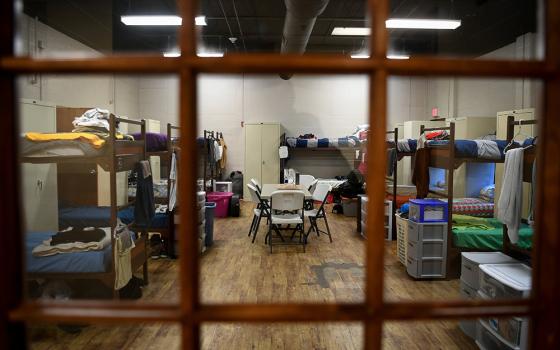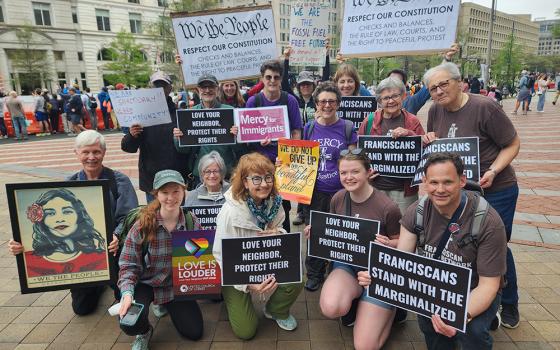No concept is more clearly identified with Pope John Paul II’s encyclical “Ex corde Ecclesiae” than that of “Catholic identity.” As discussed yesterday, this coming Sunday, the Feast of the Assumption, marks the 20th anniversary of Ex corde Ecclesiae, which seems especially fitting because one of the difficulties in that document’s implementation has been a hijacking – an assumption, if you will – of the meaning of that phrase, Catholic identity.
To some, the Catholic identity of a university means little more than banning pro-choice speakers from Catholic universities. Now, mind you, I do think there is something to be said for holding that there are things which are beyond the pale of a Catholic campus, ideas that do not deserve a Catholic forum, certain points of view that can and should be verboten. I do not think a representative of Planned Parenthood should be given an honor, or a platform, at a Catholic University: The group is in the abortion business, proud of their work, and whatever other good works they do, their actual participation in providing abortions is the kind of evil that has no place at any Catholic institution.
But, it seems obvious to me that groups like the Cardinal Newman Society go too far. The Cardinal Newman Society was at the forefront of those condemning the University of Notre Dame last year for awarding an honorary degree to President Obama. First of all, Obama is not a Catholic, and different rules can and should apply to how we consider the honoring of Catholics and non-Catholics. I do not hold him accountable for understanding Catholic Social Teaching. Secondly, there are many politicians who may or may not be morally opposed to abortion but think that the coercive power of law is not the appropriate tool for preventing the incidence of abortion. This position can easily go too far as well, falling into the lame “I am personally opposed, but…” position held by many pro-choice Democrats. Nonetheless, as Bishop Tobin demonstrated so convincingly on “Hardball,” deciding how to determine what civil penalties to attach to abortion is not such an easy task.
My chief difficulty with the Cardinal Newman Society and its ilk, however, is of a different order. I will grant that there is room for disagreement about where we draw the lines, what we decide is in-bounds and out-of-bounds, but I am revolted at the delight they take in castigating those who draw those lines differently. According to their website, they have sent a “spiritual bouquet” to those bishops who publicly opposed Notre Dame’s decision to honor President Obama. Why not send the bouquet to those who did not speak out; presumably, those are the ones whose orthodoxy fell short and are more in need of prayers. Everything about the Cardinal Newman Society reeks of self-importance and self-righteousness. It is unseemly. It is also unchristian.
The problem with the phrase “Catholic identity” is that the two words have meanings which are at odds. “Catholic” in the original sense of “universal” as applied to the early Church requires the existence of differentness: The Catholic church was the one, true church consisting of all those individual churches that dotted the Mediterranean. “Identity,” on the other hand, means simply “sameness” and, in its twentieth century applications, the concept has had an unhappy history in the Academy. Again, I recall a line of Leon Wieseltier’s in his essay “Against Identity”: “I hear it said of a man that he leads a double life and I think to myself, ‘Just two?’” Too often, the concern about identity has led to false expectations from which many individuals have had to run hard and fast to escape. Not all black scholars must so hew to the received notions of “identity” that they reach the same conclusions about issues of importance to their race or to the nation or to their field of study. Not all Latino scholars, whatever their sense of “Latino identity” must reach or follow the same logic, tread the same paths, hold the same preconceptions. Of course, there are shared experiences. Of course, there is a sense in which the Catholic imagination is different from the Protestant imagination, and that difference is interesting, consequential for one’s academic pursuits, distinctly Catholic you might say. But, that does not mean all Catholics agree. A=A lacks explanatory value when A=Roman Catholic scholar, or black professor, or Latina artist, or Jewish philosopher.
The fact that the words “Catholic” and “identity” suggest a certain tension is not a thing to be avoided, or swamped, or exploited. It is a thing to be lived. It says to the champions of academic freedom at all costs: “No, there are things which are not Catholic and have no place here, not only because they offend our faith but because they offend our definition of humaneness, which is at the heart of the university enterprise.” It says to those who wish to turn universities into elaborate Catechism centers: “No, the pursuit of truth is a multi-faceted pursuit, and sometimes the greatest discoveries are the result of egregious errors.” Our Catholic identity is something very real, but it can never be something static, of museum quality, but vibrant, alive, and like us, prone to mistakes as well as achievements, full of differentness as well as shared, common faith. This is especially true in America at this time when Latinos are bringing a culture that was born in the Catholic faith to an America that was born in the Protestant faith.
Tomorrow, I will conclude my thoughts on Ex corde Ecclesiae, dealing with the cultural opportunities of this unique moment in the life of the American Church. And, later today, we will have comments from Msgr. Kevin Irwin, Dean of the School of Religion at the Catholic University of America on the subject in our Q & A segment, which is dedicated to Ex corde all week.



